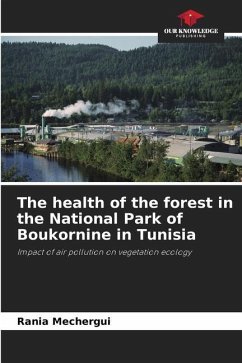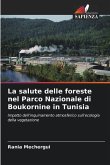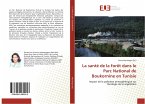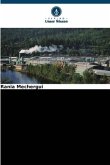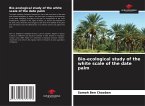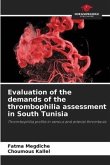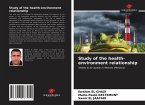The National Park of Boukornine (N.E. of Tunisia) is part of the Tunisian protected areas. Its creation was justified by its floristic wealth in order to preserve it for the future generation. Today, this park is threatened by important polluting emissions. The impact of this atmospheric pollution on this site has been studied at the local level by means of plant bioindicators. This research work allowed to evaluate the health status of the park based on the response of its vegetation (Tetraclinis articulata Vahl. and Pinus halepensis Mill.) to the environmental stresses it is confronted with in natural conditions, with a particular focus on the case of ozone, nitrogen and particulate pollution. The study of the impact of nitrogen pollution showed a good relationship between road traffic and nitrogen oxide emissions. The study showed the importance of distance and topography in the dispersion of nitrogen pollutants.

